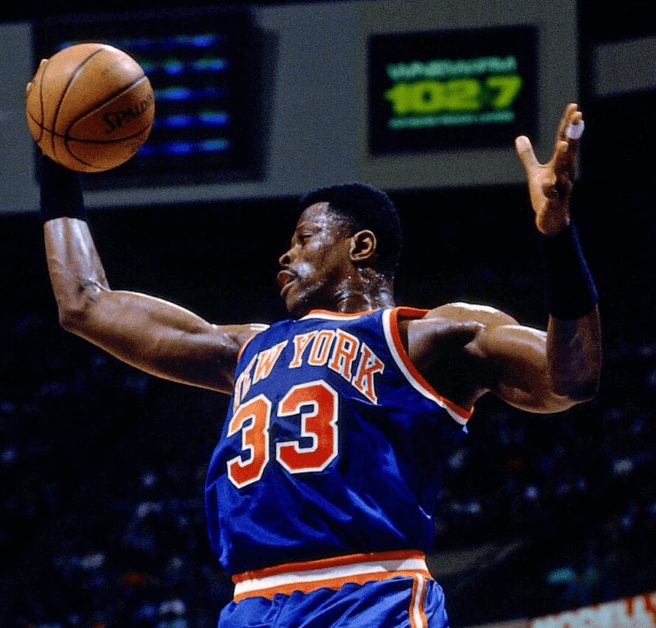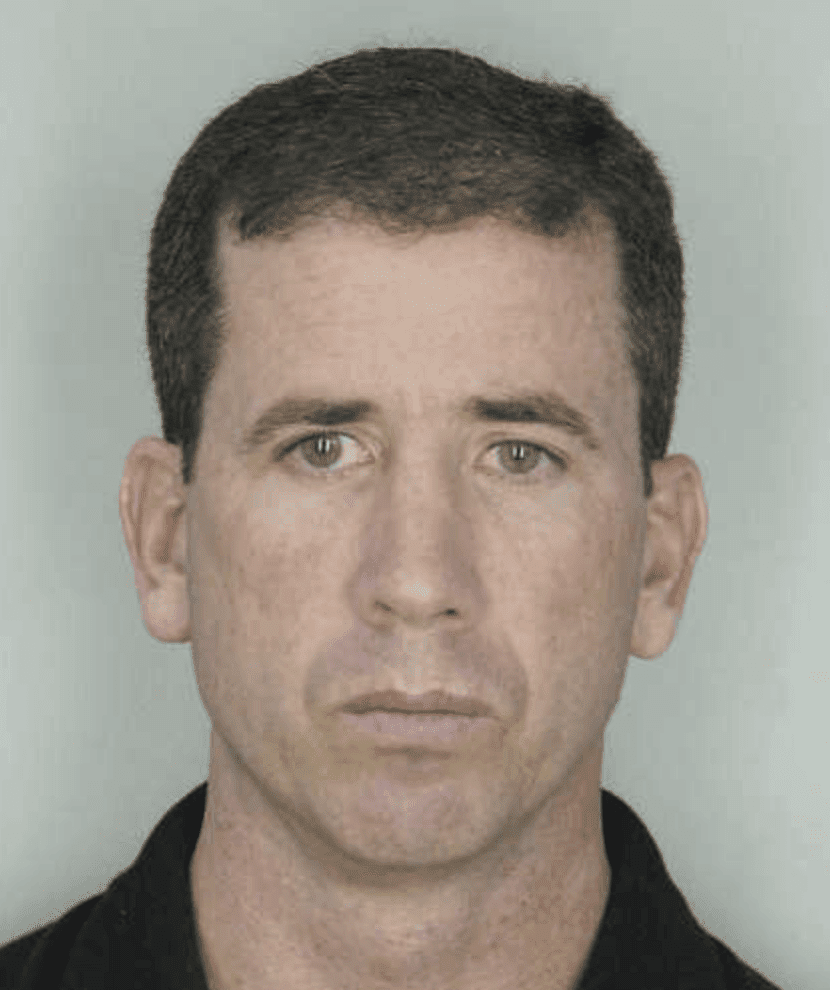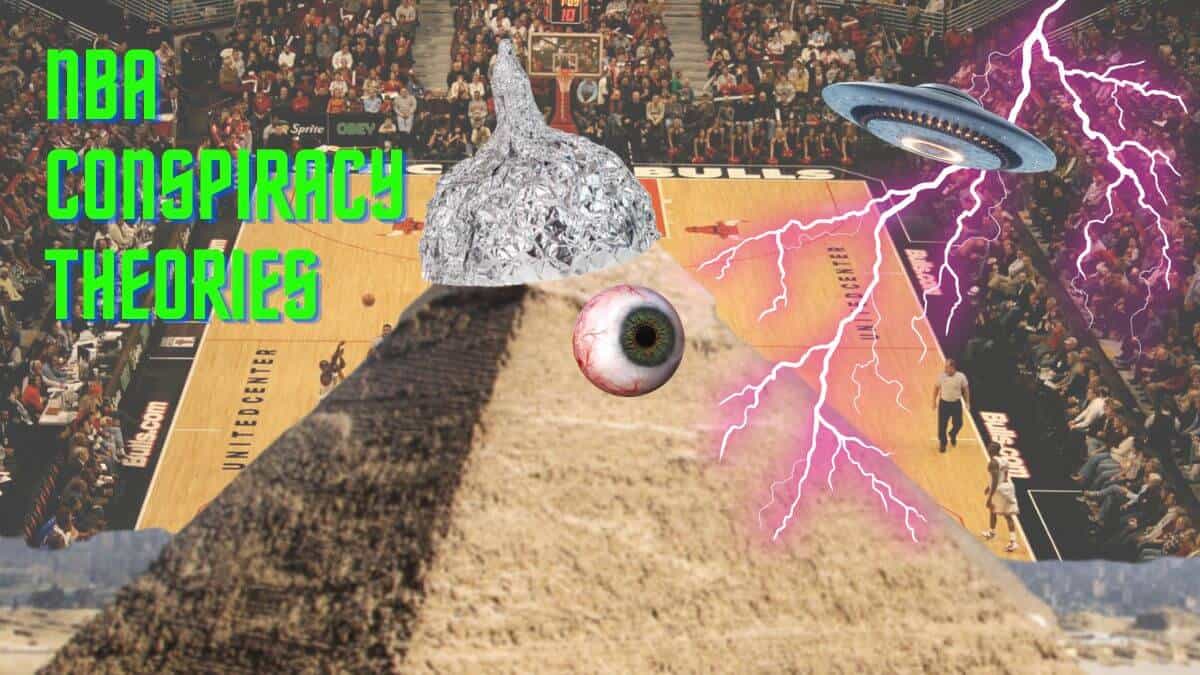NBA conspiracy theories are not a new thing. There’s even a popular podcast on the topic.
From draft lottery rigging to game fixing, there’s been no shortage of conspiracy theories surrounding the league over the years. Some of them are far-fetched, and those are often the most entertaining. Others are actually backed by compelling evidence. In some cases, they’ve been confirmed.
Here we’re putting on our tin foil hats and breaking down all of the most compelling conspiracy theories in NBA history. And if you’re anything like the HoopSong editorial crew, you relish this stuff, both feasible and nonsensical, like the freshest of hot teas. Let’s get into it…
The NBA’s Rigged Draft Lottery
One of the most popular NBA conspiracy theories is that the league rigs the draft lottery to benefit larger markets. The idea being that the NBA wants their flagship teams to get the best new players.
Many fans believe that the draft lottery system is set up in a way that these teams get better chances of securing the top draft picks. The NBA always denies these claims, insisting that the draft lottery is a perfectly random process.
The Frozen Envelope Theory
A specific instance of alleged draft fixing is illustrated in the theory of the frozen envelope.
The Frozen Envelope Theory refers to allegations that the first draft lottery in 1985 was rigged to ensure that the Knicks got first pick. The idea is that NBA officials froze the envelope containing the Knicks logo, making it possible to spot it and intentionally field the first pick to the Knicks.

At the time the league was struggling a little. The Knicks were an important franchise. They needed a Center and they needed a marquee player. The first draft pick secured them both in the form of Patrick Ewing.
Other than that solid motive, there’s no real evidence for The Frozen Envelope Theory. NBA officials continuously deny that the 1985 lottery was rigged. Apparently, some close to the matter have suggested that the envelope containing the Knicks logo felt unusually cold or had a unique crease when it was drawn, but those reports are not well supported.
NBA Fixed Games Conspiracies

Fixing is not an uncommon accusation, not in any sport. and it doesn’t help that we’ve had a confirmed fixing scandal in the NBA with the Tim Donaghy debacle.
Fans and analysts often claim that officials are biased towards certain players and teams. And honestly, it’s tough to argue that LeBron doesn’t get a light hand now and then, right?
It’s long been rumored that David Stern, during his years as NBA Commissioner, was keen on manipulating game outcomes. This was a tumultuous time in the NBA. And when Donaghy went down, he insisted that the league had a history of fixing games for their own benefit.
Stern was also known to maintain close relationships with certain characters in the league. This made for fertile ground for conspiratorial thinking. I don’t know if you’ve noticed, but fans and players have a tendency to look to external factors when they or their teams face adversity. It’s not too far fetched that folks might try and point to Stern as a reason for a loss or an unfavorable call.
One of the more popular references in the game fixing conspiracy theory is the 2002 NBA Finals. Some fans and analysts believe that the series between the Los Angeles Lakers and the Sacramento Kings was rigged. This series included some controversial officiating that seemed to benefit the Lakers, a marquee, big-market team.
The NBA acknowledges that the referees made some errors in the series, particularly a no-call on a Shaq foul against former Laker Vlade Divac in game 6. Of course, they deny intentional wrongdoing. Notably, Tim Donaghy was a ref in this series.
Some go so far as to insist that NBA refs to this day are regularly instructed to ensure that certain teams win or lose based on the NBA’s financial interests. This is probably going a little too far. It would be very difficult to keep this type of thing quiet over the years. Still, that doesn’t silence the buzz.
Lakers Kings 2002
When Donaghy went down, he left with us a particularly interesting claim that continues to haunt the NBA to this day.
Now, Donaghy’s narrative is obviously going to be a little self-serving, but it kinda makes a whole lot of sense. As Donaghy lays it out, the NBA faces a massive incentive to extend playoff runs. An extra game means extra viewers. And if a series goes to 7, interest runs through the roof.
Tim Donaghy claims that he found himself in a situation where he had become the go-to guy for the NBA in extending playoff runs. As he explains it, if the NBA wanted to send a series long, he would be sent in to nudge things in the right direction.
Though he doesn’t mention the game specifically, Donaghy insinuates rather clearly that the 2002 Western Conference Finals series between the Sacramento Kings and the Los Angeles Lakers was a victim of this NBA meddling.
Whatever the truth, Donaghy clearly took this scam way beyond extending a series for extra attention. The concept that his scamming may have emerged from a plan initially endorsed by the league is compelling, if perhaps unlikely. It’s maybe buyable that some executive endorse the idea. But any widespread conspiracy is very unlikely.
Lakers Warriors 2023
It’s the legacy of Donaghy that inspires doubt in officiating to this day. And it’s that doubt that makes a series like that between the Lakers and Warriors in the 2023 Western Conference Semi-finals so difficult to swallow.
The Lakers, with Anthony Davis and Lebron James, go hard in the paint. They’ve been going hard in the paint. This is nothing new.
The Warriors are a shooting team, through and through. They have been for years. Steph is the greatest perimeter shooter of all time. Klay is incredible in his own right. Even Kerr is an elite perimeter shooter.
And so this naturally translates to a lopsided free-throw count. As the Lakers charge into the paint, they are far more likely to draw fouls. But Warriors fans claimed the discrepancy was excessive, pointing out specific fouls that were overlooked.
I’m inclined to believe that you can find missed calls on both sides of the floor. An official NBA review of the game came out favorable, though that’s to be expected. It’s hard to argue that the Lakers haven’t benefited from at least a little bit of flopping, but a full scale fixing conspiracy here doesn’t make a lot fo sense to me. This reddit breakdown makes sense to me.
Manute Bol was secretly old AF
This one is great!
Sudanese giant Manute Bol was one of the two tallest players to ever take the floor in the NBA. And he was a force.
Some insist that, when Bol was drafted, he was in fact far older than claimed. As a native of Sudan, Bol’s birth date is officially disputed. Kevin Mackey, a former Cleveland State coach who apparently facilitated Bol’s naturalization, openly admits that he, “gave him his birthday because they didn’t know how old he was”.
So while we were told that Bol was 22 when he entered the league, some insist that he may have actually been closer to 40.
An anecdote from a former team member supports this. When Jayson Williams was with Bol and the Sixers, he recalls asking Bol about the scars on his head. And apparently Bol responded thus, “the white man lost my birth certificate in the jungle, so every five years I take a rock and I slice one across my head.” Williams, counting the scars, says this would have placed Bol at 55 years old at the time.
If this is true, it is incredible. Bol was never a particularly dominant player, but he was a strong player and offered a defensive edge to the teams he played with, using his size and length to reliably dish out blocks and snag rebounds. His shooting touch was remarkable for someone of his stature. You can see the same with his son Bol Bol of the Orlando Magic today.
If you open up to the possibility that Manute was the oldest NBA player of all time, possibly playing into his 50’s, his stat line gets a lot more impressive.
It’s quite possible that Manute was older than officially recognized. However, the Jayson Williams story doesn’t check out at all. Bol was known to joke around, and on other occasions has attributed the scars on his head to a traditional Sudanese right of passage ritual.
Yao Ming was built in a lab
Another NBA giant, Yao Ming measures 7’6″. This extreme height is incredibly uncommon for humans, let alone humans born in a country where the average height is 5’6″.
And so there have been suggestions that perhaps Yao, being a genetic anomaly, may have been somehow intentional. In fact, the truth isn’t far off.
Yao’s father was 6’7″ tall and his mother was 6’3″ tall. Now, China has been known to, ummmm, let’s say “interfere,” in the lives of its citizens. And it’s fairly well accepted that the union of Yao’s parents was at least “heavily endorsed” by the People’s Republic.
So the guy wasn’t a genetic experiment or anything, but his parents were encouraged to start a family and he was pressured and manipulated from a young age to pursue basketball. He was definitely, at minimum, the product of a nation that continues to be hellbent on making an impact on every world stage they can find.
The Michael Jordan Suspension
One of the more persistent of the NBA conspiracy theories involves the sudden retirement of Michael Jordan in 1993. In his prime in the early 90s, coming off of three consecutive NBA championships, Jordan walked away from the league.
The official story was that Jordan wanted to pursue a career in baseball, a sport his Father (who had been murdered in July of 1993) had always loved. Some fans still believe there was something else going on behind the scenes.
The theory goes that then NBA Commissioner David Stern was unhappy with Jordan’s off-court behavior. Jordan is well known to have been well mixed up in an infamous gambling habit at the time. And so the hiatus is suggested to have been an edict from Stern; sit out a year or face a full and permanent ban.
I dunno… This conspiracy kinda makes less sense than the accepted story. Jordan was struggling with the murder of his father, a powerful figure in his life. It may seem a little wacky to walk away from what would be an absolute dream for most hoopers. But it’s a reasonable response to a ridiculously overwhelming few years.
Still, Stern was certainly one to pull a few strings from behind the curtain now and then. And ousting Jordan would not have been a good look for any of the parties involved. And so, like many fans to this day, I remain on the fence.
The Chris Paul Trade Veto Theory
In 2011, the NBA was emerging from a lockout. One of the most blockbuster trades of all time was about to go through. Chris Paul would go from the New Orleans Hornets to the Los Angeles Lakers in a 3-team deal.
Lakers fans were reasonably excited to see a Kobe, CP3 Lakers dominate the upcoming season. NBA Commissioner David Stern killed the dream. He vetoes the deal, insisting that the trade was not in the best interests of the league.
Plenty of theories emerged to try and explain the deeper reasoning behind the veto. We have gotten a well-confirmed reason at this point, but that hasn’t stopped the conspiracists from conspiracizing.
The Theories
- Basketball reasons: The official reason given by Stern was that the trade was not in the best interests of the league. Experts agreed, arguing that the Lakers were getting too much talent in return for very little. Paul with Kobe would have thrown off the competitive balance in the league.
- Small-market envy: Some accused Stern of vetoing the trade to hold back the Hornets. The idea being that he didn’t want a small-market team to contend with a major franchise like the Lakers.
- Personal grudges: It was also speculated that Stern vetoed the trade out of personal animosity towards Lakers owner, Jerry Buss, or possibly towards Chris Paul himself.
The Truth
In 2021, Andrew Greif interviewed Stu Jackson, former league VP of Operations, for the LA Times. In this interview, Stu provides one of the most cogent explanations for the infamous CP3 trade veto.
The Hornets had been purchased by the NBA the year before. The league itself had never previously operated a franchise. But long-time Hornets owner George Shinn had been diagnosed with pancreatic cancer and needed to divest. The league wanted a say in who the next owner would be, so they bought it, planning a relatively quick flip.
Jackson says that, during that time, Stern would often bounce ideas off of him. He explains that he and Stern were confident that the trade would put the Monty Williams led Hornets in the playoffs, but not get them a championship. They felt then that the trade would setup the team for a long stretch of mediocrity.
The prospect of mediocrity is not particularly attractive to a new owner who typically wants to push forward on a recent acquisition. Who wants to buy an NBA team only to sit through years of disappointment?
So Jackson suggests that the real reason for the CP3 trade veto in 2011 was that the NBA was protecting its own asset. Commissioner David Stern and NBA executives did not want the Hornets to become less attractive as an asset just as they were trying to sell the franchise.
The Spencer Dinwiddie, Tony Brothers Conspiracy Theory
I first heard of this on the Basketball Illuminati podcast, so shout-out to those guys. This is one of the more recent NBA conspiracy theories. It posits that the league is intentionally distancing one of their most senior referees from a specific player, Spencer Dinwiddie. This is totally ridiculous. And yet, there’s some very compelling evidence.
In November of 2022 Spencer Dinwiddie accused Brothers of using profanity towards him in a Mavs Raptors game. Specifically, Dinwiddie insists that Brothers called him a “b*tch-ass mother fu*ker”. Brothers was subsequently suspended for one game.
Brothers has not officiated a game involving Dinwiddie since. He has officiated for every team in the league. Brothers did not officiate a Mavs game until shortly after Dinwiddie was traded to the Nets early in 2023. Brothers has also not officiated a Nets game since the trade. Coincidence? Yeah, right.
Kobe Bryant’s Death
The tragic death of Kobe Bryant is the exact type of seismic event that stokes conspiracy theories. As fans deal with grief and zoom in on a dramatic event, they attempt to sift through the details to find meaning.
And so there have been many Kobe conspiracies put forth in the years since his death.
Some theories play on the fact that the company who chartered the ill-fated flight (Island Express Helicopters) had a history of FAA violations. Others make wildly stretched connections between completely disconnected details of the story. Some of the most entertaining theories suggest that Kobe had some dirt on the Clintons that he was preparing to share.
What I’m trying to say here is that while it makes sense then that Kobe’s death would stoke conspiracy, it makes little sense that any of these theories would be true. Overwhelmingly, the Kobe death conspiracies are pure nonsense.
We lost an iconic athlete with a contentious past. End of tragic story.
Kyrie Irving Conspiracy Theories
Kyrie gets his own conspiracy page. There’s just too many theories revolving around the guy, and buzzing around in his head, that we had to dedicate an entire post just to Kyrie’s conspiracy theories.
Takeaways
Examining all of these NBA conspiracy theories, it’s understandable why fans could doubt the league’s fairness. While there may be some instances where individuals or small groups have tampered with the outcomes of games, the evidence for large-scale conspiracies is lacking.
It’s worth noting that the NBA has made several changes over the years to increase transparency and reduce the potential for corruption. These include increasing the use of video review and implementing strict rules on player conduct.
As fans, it’s important to approach conspiracy theories with a critical eye and avoid jumping to conclusions. While it’s easy to get swept up in rumors and speculation, it’s essential to examine the evidence and make informed conclusions.
At the end of the day, the NBA is a complex organization with many moving parts. While we may never know everything that happens behind closed doors, it’s clear that the league is committed to integrity and fair play. As fans, our job is to enjoy the game and support our favorite teams – without letting these theories cloud our judgment.
